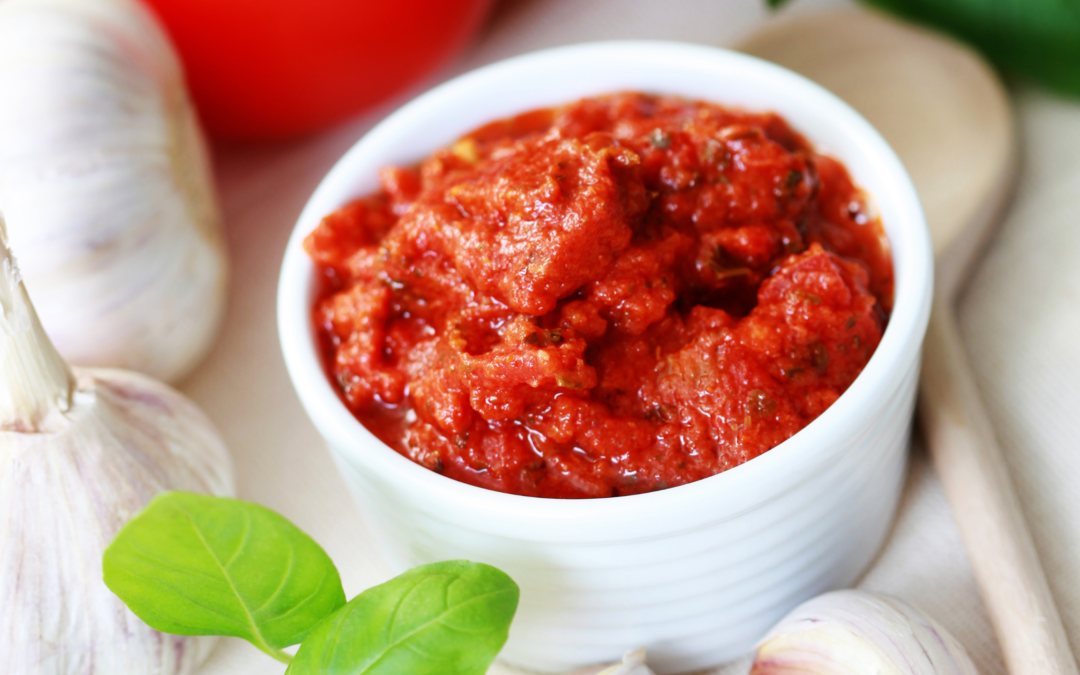


Can Lycopene Rich Foods Prevent Central Nervous System Disease?
Lycopene rich foods may have the ability to prevent central nervous system disease. This carotenoid found in tomato products may be the secret to preventing disease like Alzheimer’s and dementia. Learn more about what science has to say about lycopene rich foods and preventing disease.
It has been proven many times that lycopene (a carotenoid found in tomatoes) is an amazing antioxidant and anti-inflammatory agent that can help to reduce disease such as heart disease, fatty liver disease, prostate disease, and type 2 diabetes. However, it is lesser known that lycopene may also have neuroprotective effects in the central nervous system [1].
Studies have found that lycopene can reduce oxidative stress, neuroinflammation, neural apoptosis, and to restore function of the mitochondria. Lycopene has shown that is has neuroprotective effects, and while evidence has found lycopene supplementation can improve cognitive performance, further research may be able to prove the positive effects on the central nervous system [1]. This would allow lycopene and foods that contain lycopene to be used to prevent or treat disorders of the central nervous system. However, one drawback to using foods that contain lycopene to treat these diseases and disorders is the low bioavailability of lycopene. In some foods it may be too low to raise the level within brain tissue. However, higher concentrations of lycopene (like in a supplement) have been shown to have toxic effects [1].
Canned tomato products could possibly play a role in the treatment of central nervous system diseases and disorders. While some foods may not contain adequate levels of lycopene and would not be effective as a treatment, canned tomatoes have increased bioavailability of lycopene due to heating during processing. While further studies need to be done to prove that canned tomato products could be used in this way, it is a possibility. At the very least, we know that canned tomato products are an excellent addition to the diet and have already been proven to prevent many other diseases.
Learn more about the benefits of lycopene with these resources:
Lycopene and Canned Tomatoes May Help with Cancer Prevention
Health Connection Between Tomatoes and Lycopene
What is Lycopene?
References:
- Chen, D., Huang, C., & Chen, Z. (2019). A review for the pharmacological effect of lycopene in central nervous system disorders.Biomedicine & Pharmacotherapy,111, 791–801. https://doi.org/10.1016/j.biopha.2018.12.151

Lycopene and Canned Tomatoes May Help with Cancer Prevention
What is one of the many powers that tomatoes have on human health? They help to reduce the risk of certain types of cancer! Learn more about the antioxidant properties of lycopene and canned tomatoes when it comes to cancer prevention.
It’s important to make sure that we are fueling our bodies with the proper nutrients to live a healthy lifestyle. This includes eating well-balanced meals that contain foods such as fruits, vegetables, whole grains, and lean protein. One source of food that is guaranteed to boost nutrient intake is tomatoes and tomato-based products. Tomatoes contain lycopene—a carotenoid that gives tomatoes their vibrant red color and has various health benefits–which plays an integral role in the improvement of heart health, protection from the sun, and reduction in certain types of cancer.
The incorporation of lycopene-rich foods, especially tomato-based products, have been shown to boost overall health. One specific research study gathered 19 healthy human subjects to identify the impacts that the consumption of tomato-based products—tomato juice, spaghetti sauce, and tomato oleoresin—had on each individuals’ body when the certain tomato-based products were consumed for a period of one week. The results of the study showed that since these products contain dietary lycopene, which is found in tomato products, they may act as antioxidants. In addition to the antioxidant properties found in tomatoes, lycopene is readily absorbed from tomato products. When food is readily absorbed by your body, it aids in gut health and digestion. Therefore, the correlation between lycopene, antioxidant powers, and tomatoes is strong, and researchers suggest that tomatoes can play a crucial role in the prevention of cancer.
As previously mentioned, tomato juice, spaghetti sauce, and other sources of tomato products can improve health and reduce risk of diseases. This goes to show that eating healthy can be made simple. For example, if someone told you to eat pasta with tomato-based spaghetti sauce to boost your nutrient intake, you would easily agree because it’s THAT easy! The best part about tomatoes is that they are extremely versatile and can be paired with both sweet and savory ingredients to whip up a flavorful, nutrition meal. So let’s get cookin’ with canned tomatoes!
Check out some delicious recipes featuring canned tomatoes:
Pan Seared Pork Chops with Bourbon Peach Compote
Easy Chicken Curry
Pizza Stuffed Chicken
The BEST BLT Dip

Health Connection Between Tomatoes and Lycopene
What’s the health connection between tomatoes and lycopene? Researchers performed a review of 174 articles to determine the health outcomes associated with tomato and lycopene. In May 2020, this study provided evidence which supports the claim that consumption of tomatoes and lycopene are linked to numerous health benefits. Tomato intake has similar health effects to lycopene intake, as they are both inversely associated with mortality, prostate cancer, lung cancer, and heart diseases. There are a few variations between tomato and dietary lycopene intake: tomato products are inversely associated with cerebrovascular disease mortality and gastric cancer, while lycopene is inversely associated with stroke and male infertility.
Fresh tomatoes are not the only tomato products that are nutrient-rich and contain lycopene. In fact, canned tomatoes, marinara sauce, salsa, and even tomato soup have a slightly higher amount of lycopene in them due to the cooking and canning process they undergo. Similar to most nutrients, it’s more natural to obtain lycopene from foods rather than supplements. In order to achieve maximum health benefits associated with lycopene, it is recommended to consume tomato products with a heart healthy fat, such as olive oil or avocado. That’s why we recommend enjoying lycopene and its health benefits through delicious foods such as lasagna, curries, and bolognese. So, what are you waiting for? Enjoy some canned tomato products today!
For other tomato news, check out:
Top 11 Reasons to Go Red with Tomato Products
Can Tomatoes Help Your Kid Eat More Veggies?
What is Lycopene?
Recent Comments